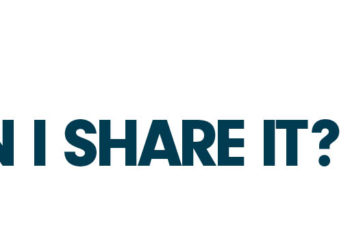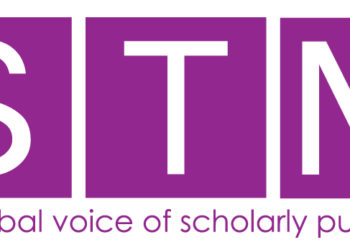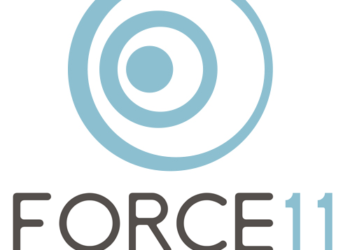Are you familiar with the case of Diego Gómez? He’s a Colombian researcher currently on trial for sharing someone else’s thesis on the Scribd platform. Next week, a judge will decide whether he should be imprisoned (the crime carries a potential sentence of between four and eight years). It’s not an edifying tale, in that no one comes out of it particularly well: not the author (trying to argue that the sharing of his five-year-old thesis constituted harm), not publishers (whose policies around theses publication discourage electronic sharing of theses and underpin the idea of harm), not the prosecution (blindly applying a law really intended to protect commercial content against commercial piracy), and perhaps not even the researcher (arguing that he thought something being online meant it was public domain). Much of the coverage of the case has focused on whether copyright laws that enable such a sorry scenario can be fit for purpose, and whether open access solves the problem (I’m not sure it’s that simple, in that the issue here is not access, but copyright — Todd’s post earlier this week was timely, in this context). For me, the thread that hasn’t been pulled much is whether online availability of a thesis precludes publication; I’ll come back to that after a quick recap.

In 2011, Diego Gómez found a 2006 thesis in a library. From what I can gather, it was online, but unpublished (perhaps on an intranet? It’s not clear what kind of platform it was on; if I understand correctly, it had already been digitized, but not made publicly available — so presumably not a repository, or even an e-theses database). He shared a copy in Scribd, which was at that time used “Mendeley-style” by many researchers to share interesting information with others in their field. (It should be noted that Scribd didn’t adopt its current business model, whereby authors can post their own work on the system and receive payments based on the views, until 2013 — i.e. there was no commercial gain for Diego in posting the thesis to Scribd). “I never thought I was violating any law,” he was quoted as saying (in The Scientist); “I thought that I was giving him benefits on sharing his work.”
However, the unnamed author didn’t see it that way: he sued for damages, reportedly because the “distribution” of his results meant that he could not now publish them. Diego Gómez removed the article, and offered a settlement. Newsweek quotes Carolina Botero (whose digital rights organization, Fundación Karisma, is helping Gómez) as saying this was rejected by the author as too low. The situation has been publicized by a wide range of other organizations including the Electronic Frontier Foundation (EFF), Creative Commons, Internet Archive, Knowledge Ecology International, Open Access Button, Derechos Digitales, Open Coalition, Open Knowledge, The Right to Research Coalition, Open Media, Fight for the Future, USENIX, Public Knowledge, Web we Want, and OpenCon (most of this list pulled from a letter of thanks from Gómez to his supporters, published on the Fundación Karisma website).
Nonetheless, the case has dragged on; after several postponements, the final arguments were presented in April this year, with the Judge’s final decision due on May 24th. Colombia’s legal system allows for a prison sentence of up to 8 years for copyright infringement (more than the maximum for a sexual assault or for people trafficking, The Guardian points out; some suggest that the penalties were made harsher as part of Colombia’s free trade agreement with the US, which wanted to increase protections for commercial copyrights around music, film and so forth — academic copyrights, and transgressors, have been caught up in that).
Statnews sees a connection between the issues at stake in Diego’s case, and the work that we at Kudos and others including the STM Association are doing around fairer approaches to sharing of work online. These projects are focused on post-publication sharing; the case against Diego Gómez suggests we also need to think about pre-publication sharing. Which publishers still have policies that mean they won’t consider papers / books developed from theses that have previously been made available online? Is this still a valid concern on behalf of the author in this case — has he really been harmed to the extent that another academic should be imprisoned? This study by Marisa L. Ramirez et al., found “more than half of the science journals responding (51.4%) reported that manuscripts derived from openly accessible ETDs [Electronic Theses and Dissertations] are welcome for submission and an additional 29.1 percent would accept revised ETDs under certain conditions”. Is there still catching up to be done in terms of publisher’s policies, and / or could publishers do more to update perceptions of researchers (and lawyers) here, and prevent future cases of this nature?
Discussion
11 Thoughts on "Does Sharing of an Unpublished Thesis Create Enough Harm to Imprison Someone?"
Sounds like the window and loaf of bread crime by Jean Valjean
I am taking the author side on this, though the “punishments” being discussed are too extreme. If I went to a repository (which I had access to for some reason) and took a bunch of unpublished papers not under a re-use license and put them in my journal without getting permission from the author of the paper, that would be wrong. Gomez did not have permission to post/publish someone else’s paper online.
Journal policies around published theses have evolved very recently due to universities forcing student to post their theses and dissertations online. Remember when ProQuest was selling them through Amazon without explicit student permission? That was seen as bad. I have no doubt that the number of journals that are okay with published theses was a lot lower in 2011 than it is now. The author concerns at the time were valid.
All that said, the punishment does not fit the crime. The paper was removed and hopefully could not be easily found online. Case closed and a learning lesson for poor Gomez.
Here’s a true story for you. We had a paper in review that was part of a thesis being turned in around the same time. The reviewer had some concerns and decided to put the paper through his university plagiarism checking software. The reviewer did not check the box that asked that the paper NOT be saved in the software database. A few weeks later, the school ran the thesis through the same database and found the 100% match to the journal paper in review. They would not consider the thesis until the issue was resolved. This created a panic situation for all involved as we tried to track the source and get the database to remove the paper.
There are ramifications to sharing work that is not yours to share. Though in this case, jail time is excessive.
Thanks, Angela. You make me think more about a thread I didn’t pull much in my post: does posting to Scribd count as “dissemination”? Would the author / publisher really have a basis to feel that, by being in Scribd, the thesis was “published”? This creates a Catch-22. Argue “yes”, and in that case, why aren’t publishers just putting unedited manuscripts into Scribd (or ResearchGate etc) and calling that “publishing”? Argue “no”, and why is this a crime punishable by prison? Ramifications, yes; prison, no, as you say. (Of course – he may not end up in prison, and it will be interesting to see what judgement is made next week).
Much of the coverage of the case has focused on whether copyright laws that enable such a sorry scenario can be fit for purpose, and whether open access solves the problem (I’m not sure it’s that simple, in that the issue here is not access, but copyright).
Part of what complicates this question is the fact that for many (though not all) OA advocates, access is only truly open if the content is made available under CC BY terms or the equivalent. This would mean that copyright issues and OA are made kind of inextricable from each other, since an author who retains his or her exclusive copyright prerogatives is preventing the work from being OA.
A few of you may remember a case in the Second Circuit in New York involving a suit brought by J.D. Salinger against the author Ian Hamilton and his publisher concerning a biography of the writer that quoted or paraphrased unpublished letters of Salinger that had been deposited in a university library archive. The district court judge (who happened to be Pierre Leval, who famously wrote the majority opinion in the Google case on appeal and who is credited with the idea of “transformative use” adopted by the US Supreme Court in 1994 in the Campbell v. Acuff-Rose parody case) ruled this to be fair use, but his decision was overturned on appeal. This, along with some other court decisions at the time, came rise to the notion that fair use did not apply to unpublished work at all. In response to pressure from the American hiostorical Association, the Association of American Pub,ishers, and other groups, Congress changed Section 107 to make clear that fair use could apply to unpublished work. What Mr. Gomez did would probably not be considered fair use, however, because no “transformative use” was involved, and his act robbed the author of his right to decide when, how, and whether to publish the work. Gomez’s naivete is no excuse under the law because copyright is a “strict liability” regime, but could be factored into a court ruling about what penalty to impose. As for open access, remember that many CC licenses reserve certain reuse rights to the author, so no user can just freely distribute anything found online, especially if it were online only in a restricted, intranet site. What is odd about the pending decision, however, is that the author is apparently seeking actual damages, which are very hard to prove, rather than statutory damages, which require no proof of actual harm. Gomez owes the author something, but jail time does seem excessive.
Taking the thesis down from the internet should be sufficient from a publisher’s standpoint, since the material from that point would only be available from the authorized publisher–presumably having also had the benefit of editing and revision.
I have no comment on the specifics of this cast. What I do have is a question: If you used the word “stealing” instead of “sharing” in your title, would you have come to a different conclusion?
Yes, probably! Perhaps this is what Doug’s getting at in his comment above. I think however you couch it, the level of harm (and the lack of intent) make the reaction to this case disproportionate.
The court has issued its ruling, acquitting Diego Gomez of charges:
http://www.the-scientist.com/?articles.view/articleNo/49514/title/Grad-Student-Acquitted-in-Thesis-Sharing-Case/
Thanks for the update! Great news in terms of this one researchers not going to jail or otherwise suffering a disproportionate punishment. But I guess the result must have interesting repercussions / implications for Colombia’s copyright law.



